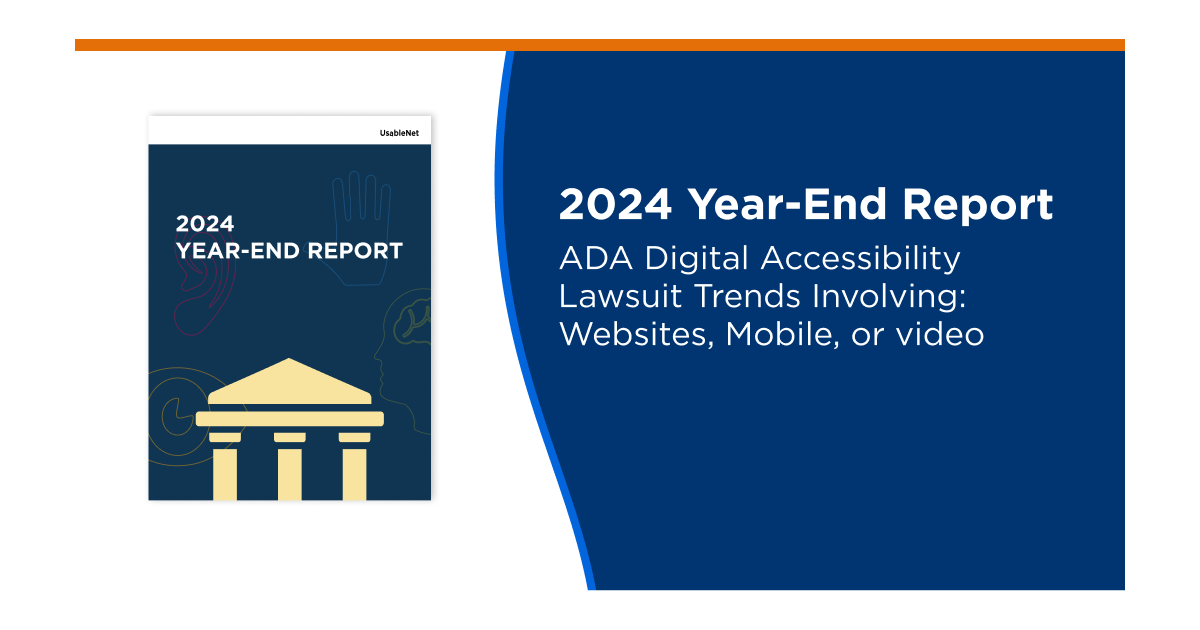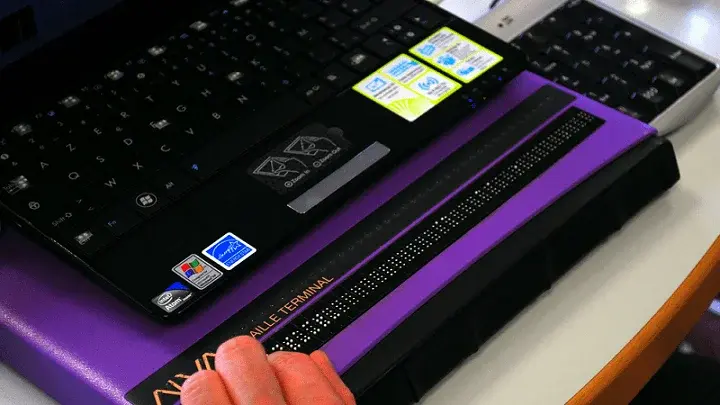Over the past few months, hundreds of new types of ADA-based lawsuits were filed against retailers, restaurants and hotels in the name of inclusion. While these are not the broader Web and App Accessibility suits that we typically monitor, the rise in the expanding definition of ADA lawsuits is a trend to watch in 2020.
Does That Gift Card come in Braille?
More than 30 Retailers and Restaurant between Oct. 24-27, 2019, received putative nationwide class action cases filed in two U.S. District Courts alleging that issuing companies did not offer their gift cards in Braille. The complaints assert that failure to do so violates Title III of the Americans with Disabilities Act (ADA).
Gregory B Reilly of Bond Schoeneck and King, PLLC has written up a good summary in his blog, "The New Class Action Risk: Gift Cards Without Braille. " We've quoted it below and you can read in full here.
When the ADA was first signed into law in 1990, the lawsuits claiming ADA violations largely focused on physical access barriers to businesses, such as not providing a wheelchair ramp or an elevator. A few years ago, the concept of “access barriers” expanded to include websites. For instance, thousands of lawsuits were filed by blind persons alleging that websites were not accessible to them.
It appears we are at the beginning of a new wave with gift card lawsuits. Over the past two weeks, several lawsuits have been filed against retailers, restaurants, and other merchants for failing to provide gift cards that are accessible to the visually impaired. At least eleven major chain stores in the Eastern District of New York and at least another eight in the Southern District of New York have been sued for not providing braille gift cards. Like the web accessibility lawsuits, these new lawsuits are filed against businesses by a handful of “serial plaintiffs” usually represented by the same small group of law firms.
Does Your Hotel Reservation System tell which Rooms are Accessible?
The other variation of ADA Website lawsuit emerging in 2019 to watch in 2020 is for hotel and lodging companies on allegedly missing accommodation information in the listing on websites when people with disabilities book online.
These lawsuits are based on the Website, but the complaint is around the information provided, not the actual accessibility of the Website. UsableNet does not report on this type of lawsuit in our Web and App Lawsuit Report.
In Florida in 2019, one plaintiff and and her attorney reached settlements with more than 20 hotels for this kind of lawsuit, as reported in the Miami Herald. We've quoted that article by David Goodhue here and included a short excerpt below.
The suits state that the hotels violated the Americans With Disabilities Act because their websites’ reservations systems “fail to provide information about the accessible features of the hotel and its rooms to persons with disabilities.”
What can companies do in 2020 to Avoid ADA Lawsuits?
The recent private lawsuits work to expand the definition of what is covered by the ADA, to promote inclusion at all levels. But how do you find and fill in these gaps?
A Harvard Business Review's article, "4 Ways to Improve Your Company’s Disability-Inclusion Practices" recommends starting with your greatest resource, your people. This can bring significant financial benefits as quoted below, read the article in full here.
Moreover, recent economic modeling (part of an award-winning research study conducted by Accenture, the American Association of People with Disabilities, and Disability:IN) found a strong correlation between financial performance and well-developed disability-inclusion practices.
According to the article, when people with disabilities enter the workforce it benefits the economy, people with disabilities, and employers. In 2020, consider making inclusion a part of your company culture.
An overall commitment to building accessibility into all procurement training and release requirements will benefit all aspects of your business. Inclusion allows you to not only avoid lawsuits but will create greater loyalty among existing customers and help you to win new ones.
Ready to get started with digital inclusion? Our Accessibility experts are here to help. 









